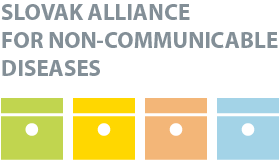—
Analyses

Ten years ago, in September 2004, were approved the six health reform Acts. To this day the principles of this reform remain well-preserved.This article describes a summary of developments and changes during this period.

The Ministry of Health (MoH) in August 2014 published a document which aims to provide information on the project of a new university hospital in Bratislava, to be constructed as public-private partnerships (PPP). HPI expresses our expert opinion to the document.
The topic of this paper focuses on informal patient payments in Kosovo public health care system, and it includes an analysis of current anti-corruption institutions and policies as well as a description of findings from focus groups with regard to perceptions of doctors’ and patients’ about informal patient payments.
Analysis of the time availability of selected elective performances in Slovakia in selected categories of health care in 2013 and their comparison with the situation in the past.

The current issue of our traditional publication "Health Policy Basic Frameworks", now for the years 2014 – 2016, is focused on the most pungent segment of Slovak health system - hospitals. The authors quantify the investment gap, looking for the resources to cover it, bring examples of modernization of hospitals abroad. A separate chapter is dedicated to the payment mechanism, as well as human resources in healthcare.
Analysis of informal payments in the health sector in Slovakia identify the specific indicators for the occurrence, symptoms and causes of informal payments in the health sector.
Brief review of the health system in Serbia provides informations on organization and provision of services, financing, resources or corruption in health care system of Serbia.
How organized, financed, regulated is health care in Kosovo? The answers to these and many other questions related to this poor European country brings this brief review of the health system in Kosovo.
Voluntary health insurance is an additional health security to public health insurance. It is used primarily to cover the costs for extra services. The market for this type of insurance is in Slovakia underdeveloped. Only 0.2% of the financial resources of the health sector in Slovakia comes from private health insurance plans. The main reason for this situation is not defined basic package of health services covered by public funds.
Trend of childless couples, like in many other countries all over Europe, is increasing in Slovakia. From year to year is accumulating more and more couples who have trouble with conceiving. Once and for most of them the only way to become a parent is assisted reproduction treatment. This paper tends to present current legal framework and analyze health and financial policy on infertility care in Slovakia which can be used in future policy and decision making process.
News
The amendment of the Decree on emergency medical service
Health insurance companies returned over 400 thousand €
The HCSA received 1,647 complaints last year
A half million people will earn more
Most of public limited companies ended in the black
Debt of hospitals on premiums has grown to nearly € 105 MM
Slovak health care may miss € 250 million next year
Profits of HIC amounted to € 69 mil. last year
Owners of Dôvera paid out money but did not paid taxes
Like us on Facebook!
Our analyses
- 10 Years of Health Care Reform
- New University Hospital in Bratislava
- Understanding informal patient payments in Kosovo’s healthcare system
- Analysis of waiting times 2013
- Health Policy Basic Frameworks 2014-2016
- Analysis of informal payments in the health sector in Slovakia
- Serbia: Brief health system review
developed by enscope, s.r.o.
